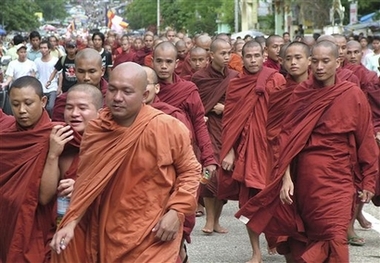Open Letter from Akbar Ganji to the UN Secretary-General
September 18, 2007
To His Excellency Ban Ki-moon, Secretary-General of the United Nations,
The people of Iran are experiencing difficult times both internationally and domestically. Internationally, they face the threat of a military attack from the US and the imposition of extensive sanctions by the UN Security Council. Domestically, a despotic state has – through constant and organized repression – imprisoned them in a life and death situation.
Far from helping the development of democracy, US policy over the past 50 years has consistently been to the detriment of the proponents of freedom and democracy in Iran. The 1953 coup against the nationalist government of Prime Minister Mohammad Mossadeq and the unwavering support for the despotic regime of the Shah, who acted as America’s gendarme in the Persian Gulf, are just two examples of these flawed policies. More recently the confrontation between various US Administrations and the Iranian state over the past three decades has made internal conditions very difficult for the proponents of freedom and human rights in Iran. Exploiting the danger posed by the US, the Iranian regime has put military-security forces in charge of the government, shut down all independent domestic media, and is imprisoning human rights activists on the pretext that they are all agents of a foreign enemy. The Bush Administration, for its part, by approving a fund for democracy assistance in Iran, which has in fact being largely spent on official institutions and media affiliated with the US government, has made it easy for the Iranian regime to describe its opponents as mercenaries of the US and to crush them with impunity. At the same time, even speaking about “the possibility” of a military attack on Iran makes things extremely difficult for human rights and pro-democracy activists in Iran. No Iranian wants to see what happened to Iraq or Afghanistan repeated in Iran. Iranian democrats also watch with deep concern the support in some American circles for separatist movements in Iran. Preserving Iran’s territorial integrity is important to all those who struggle for democracy and human rights in Iran. We want democracy for Iran and for all Iranians. We also believe that the dismemberment of Middle Eastern countries will fuel widespread and prolonged conflict in the region. In order to help the process of democratization in the Middle East, the US can best help by promoting a just peace between the Palestinians and Israelis, and pave the way for the creation of a truly independent Palestinian state alongside the State of Israel. A just resolution of the Arab-Israeli conflict and the establishment of a Palestinian state would inflict the heaviest blow on the forces of fundamentalism and terrorism in the Middle East.
(continued after the jump…)
Continue reading Akbar Ganji’s open letter on Iran
